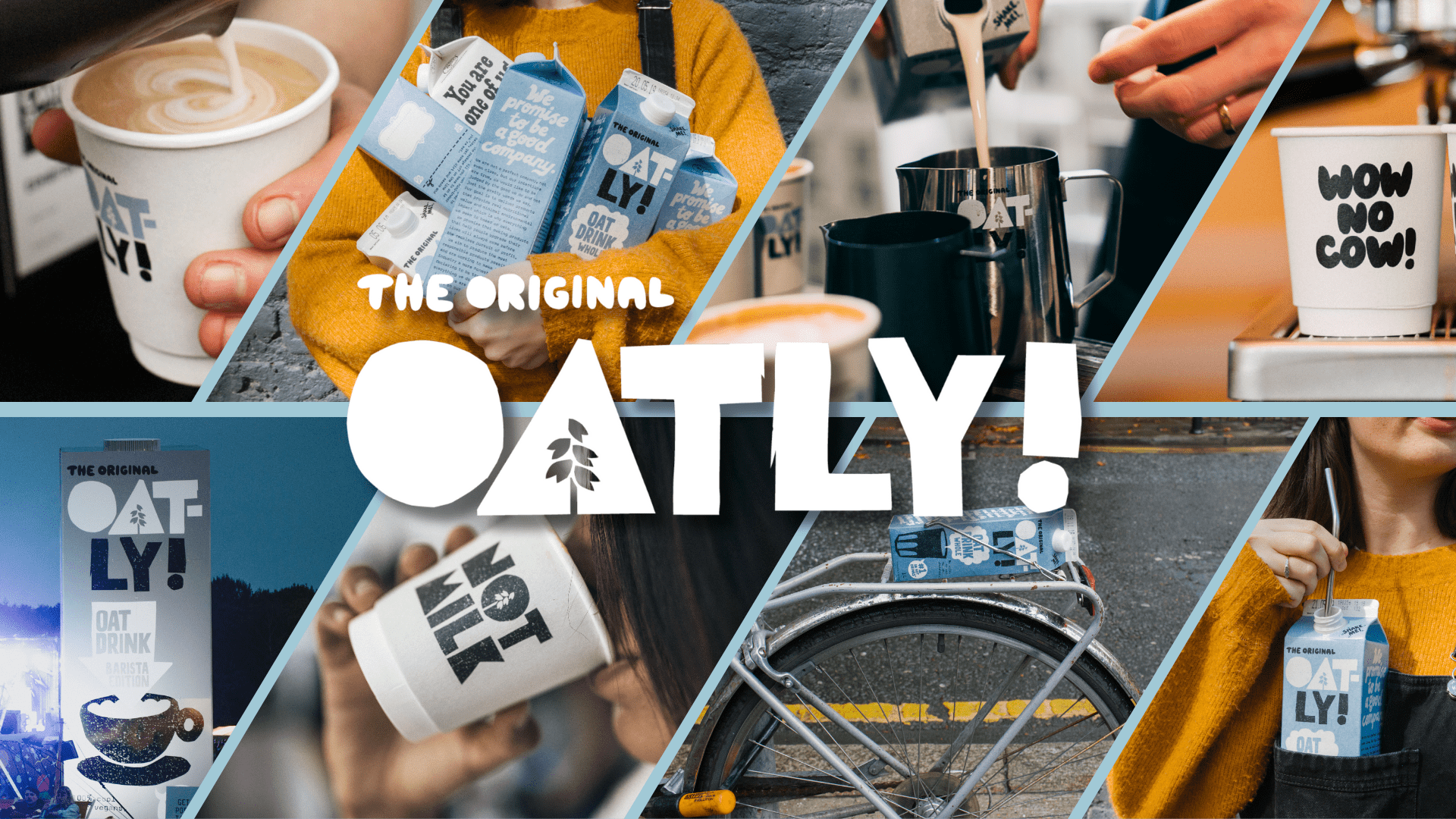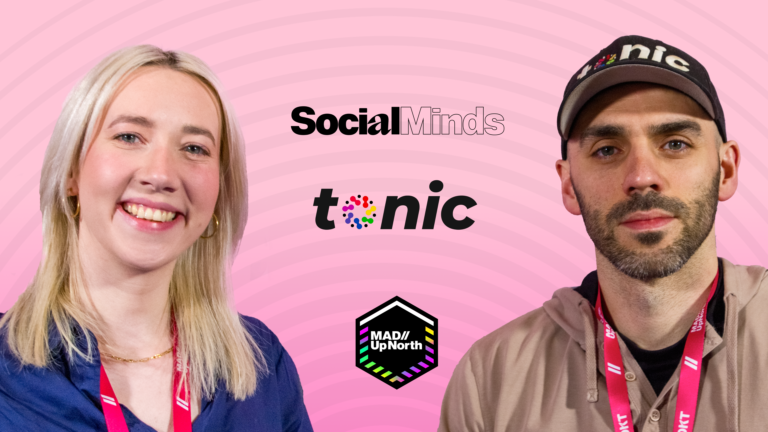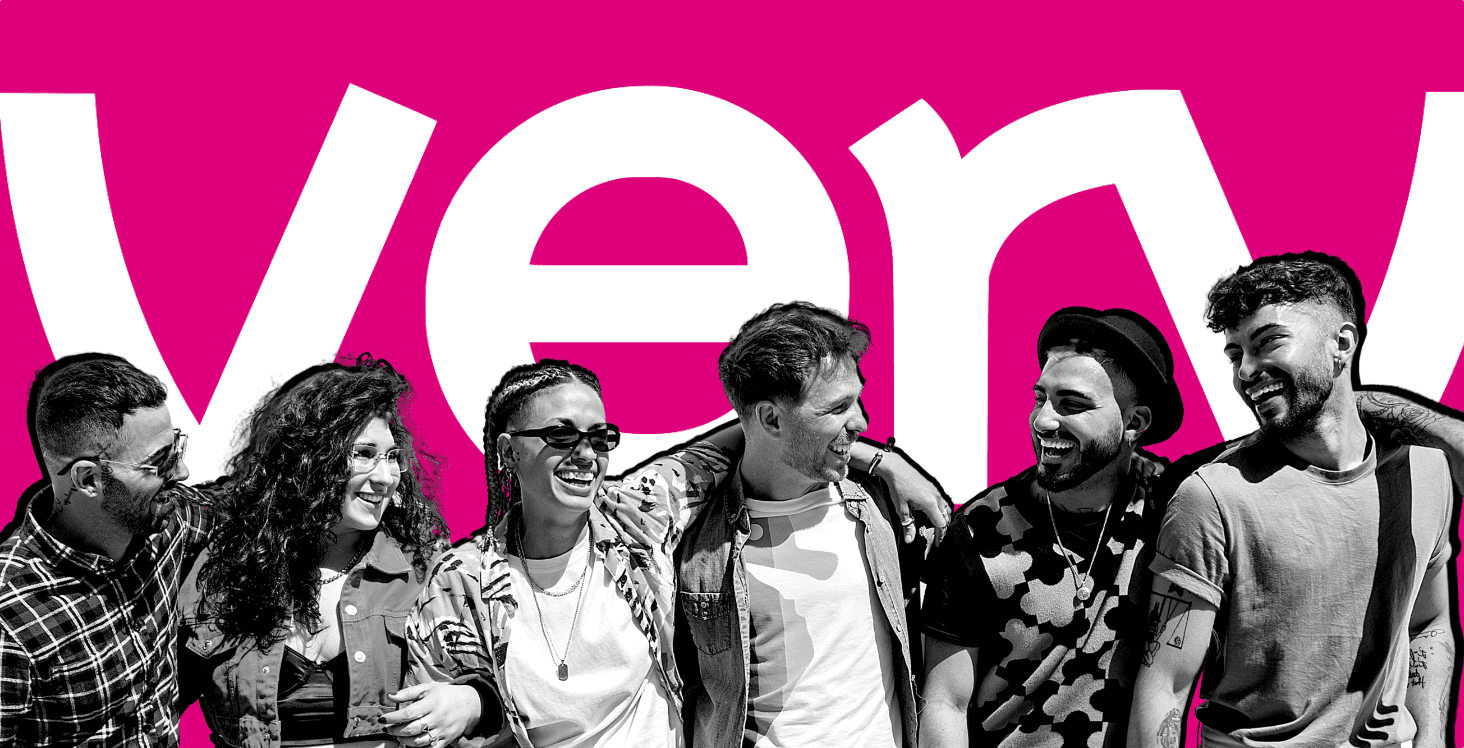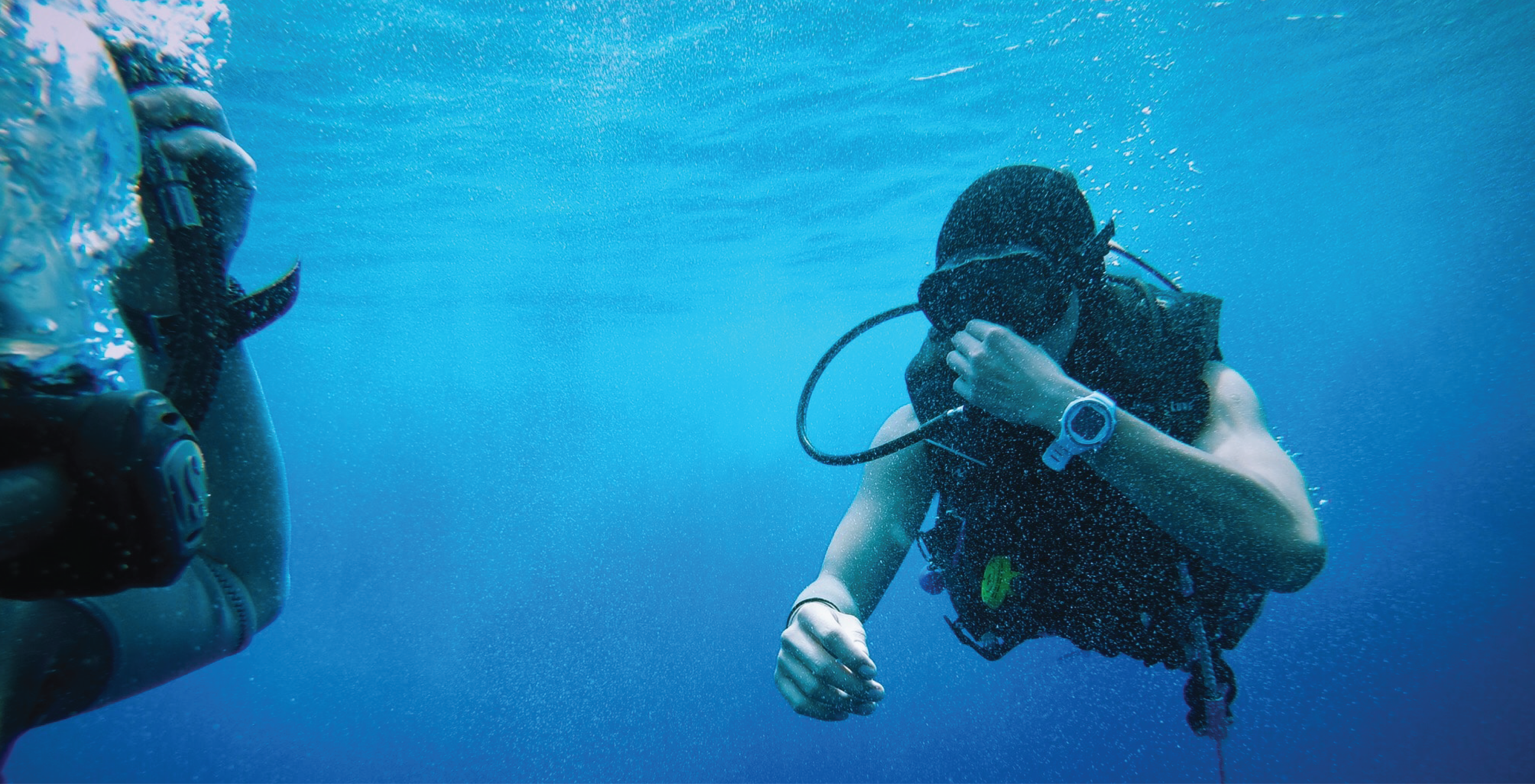“It’s a work in progress”: Inside Oatly’s consistently inconsistent social strategy
Whether it’s the instantly recognisable OOH ads or playful pop-ups, Oatly’s been a best-in-class example for marketers since its renowned rebrand in 2012. But the phrase “resting on your laurels” doesn’t seem to be in Oatly’s vocabulary. Demand for non-dairy products has exploded in the last four years, and the US oat milk market is estimated to grow to $7.6 billion by 2028, just over twice as much as its 2020 valuation. With more and more alternative milk products crowding our supermarket shelves, the time was ripe for a refreshed media plan.
Heading up that media plan is Sarah Sutton, Oatly’s global media director. It’s her job to lead the team to communicate the benefits of a plant-based lifestyle in a way only Oatly can. To tell us how that looks, Sarah joined the latest episode of the SocialMinds podcast.
Scaling for social
Of course, “scaling up” doesn’t mean “toning down”. As businesses grow, there’s a tendency to become overly cautious for fear of backlash, says Sarah. But Oatly is doing everything to ensure its commitment to provocation remains intact, even as the business grows and embraces new ways of working.
“We embrace fear. If an idea scares us, we’re onto a good thing.”
Oatly’s trademark high-production TV ads and bold billboards aren’t going anywhere. But the ODMC, AKA the Oatly Department of Mind Control, AKA the creative department, has had to adopt a platform-native approach to stay ahead of its competitors. This means less high-production campaigns with all the bells and whistles and more quick and quirky TikToks shot in 9:16. “It was a major adjustment,” notes Sarah. “But we embrace fear. If an idea scares us, we’re onto a good thing.”
@oatly This one got personal
♬ Trap Action Music(887027) – Pavel
The Oatly POV
Never one to overcomplicate, Oatly’s social strategy has only two rules: one, be consistently inconsistent, and two, never bore the hell out of people.
The most sceptic of strategists might say this leaves too much room for experimentation. Oatly says that’s the whole point. While the wider business is data-led, Sarah says adopting the same approach to social doesn’t mix well with cultivating unique creative ideas. “A data-led approach can lead you down a well-trodden path. If brands follow the data myopically, we’re all going to end up in the same place, and we don’t want to do that.”
Creative decision-making is led by a single point of view: “Do we have something to say? And can we say it in a way that’s wildly unconventional?”
So facts and figures aren’t a huge concern. Does best practice hold any weight? “We monitor post performance, and we consider headlines, logos, CTAs, and clickable links,” Sarah admits. As for trends, Oatly is more a leader than a follower – but whenever the brand does have something to say, the goal is to say it in Oatly’s unique point of view.
Oatly’s approach to its content raises an important point about the importance of a holistic comms strategy. Just because you can use social to say everything, doesn’t mean you should. It’s OK if, like Oatly, social is the place where you dial up the entertainment factor and crank up informative, product-led messaging elsewhere. Of Oatly’s four content pillars (sustainability, health and nutrition, product support, and nonsense), Sarah explains most ‘nonsense’ content happens on social, because it’s where people crave entertainment.
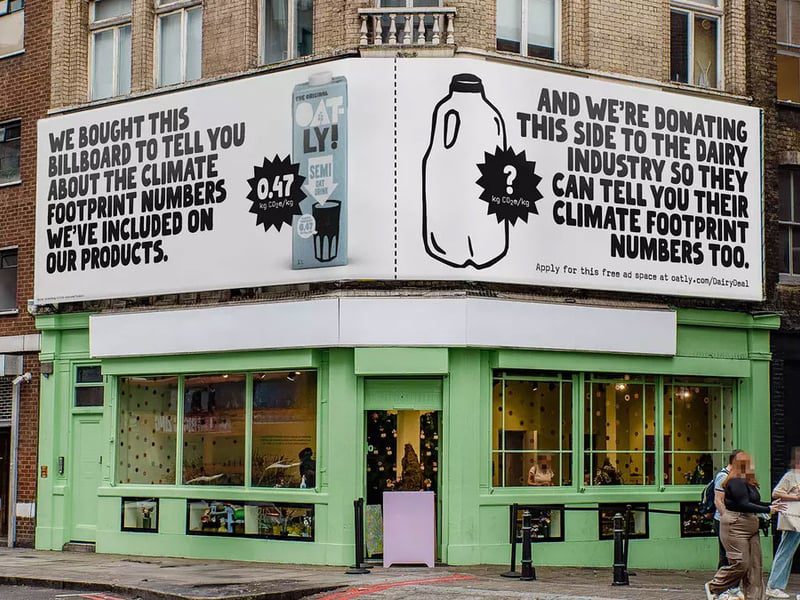
Sarah advises saving social for laughs, not lectures. But Reddit is where Oatly does a bit of both. The Dairy Deal campaign, executed as a Reddit AMA, certainly wasn’t lecturing fans, but Big Dairy; namely for the lack of carbon footprint labels on its packaging. The campaign smashed all benchmarks, including a 150% higher Reddit upvote rate. Plus, it resulted in UK consumers voting the brand the most sustainable food and drink retailer in an independent study by market research agency Impact. Talk about measurable outcomes.
Spinning feedback into fortune
So how does this strategy guide Oatly’s creative? Within the ODMC, creative decision-making is led by a single point of view: “Do we have something to say? And can we say it in a way that’s wildly unconventional?”.
This mantra is the team’s North Star for all content, including reactivity – something the team excels at owing to its lack of complicated approval processes. When TikTok creator Andrea Valls’s comedy skit personifying cow’s milk went viral, Oatly turned around a paid partnership with Andrea that went live three days after the original.
“Whatever negative force is at play – be it conflict, failure or adversity – is the most powerful thing we have to play with.”
And what about tone of voice – can we expect rules and regulations? We’ll let you guess. “We don’t have a singular tone of voice. Our team is made of multiple creatives working in multiple markets, with different ideas, styles, approaches and colloquialisms, so having a house voice can be creatively stifling,” says Sarah. Instead, Oatly’s creatives are united by a broader brand sensibility: it’s anti-establishment, has a disdain for convention, is painstakingly self-aware, uses humour to further its mission, and is willing to be controversial. Hit all the boxes, and you’re golden.
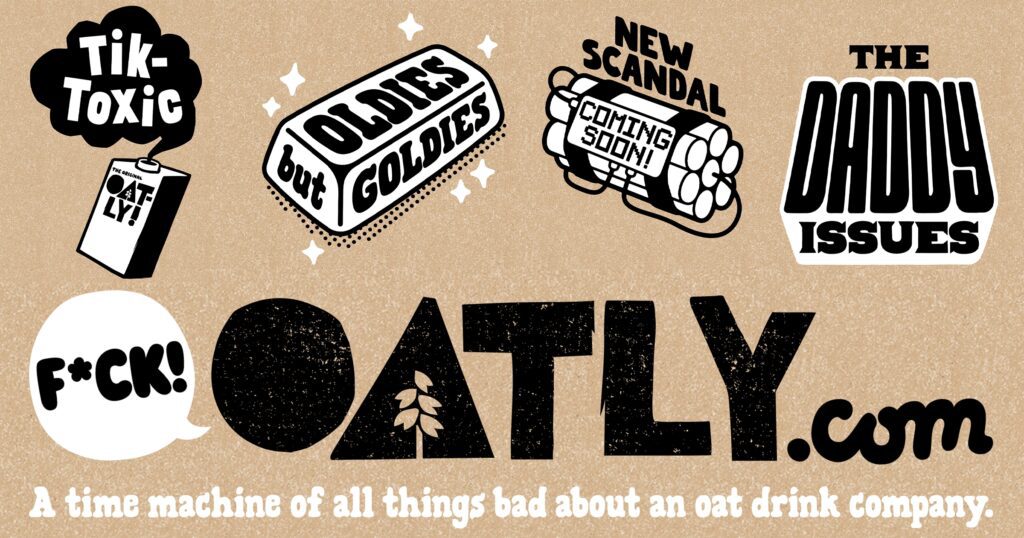
Oatly isn’t just willing to be controversial; the brand actively embraces it. “People who don’t like us tend to be the most interesting,” says Sarah. “Whatever negative force is at play – be it conflict, failure or adversity – is the most powerful thing we have to play with.” Where most brands have a strong aversion to criticism, Oatly has the Midas touch. Last year, the brand created fckoatly.com to curate all of its negative press, generating conversation and cementing transparency as a brand pillar. True to form, the brand bought further domains, like fckfckfckfckfckoatly.com (search it) as well as feckOatly.com for its Irish ‘fans’.
Maybe starting your own hate site isn’t for every brand, but one thing’s for sure: Oatly’s social strategy is a masterclass in being fearlessly creative. In a world where most brands play it safe, it’s a reminder to be bolder, even if, and especially if, it scares you.
